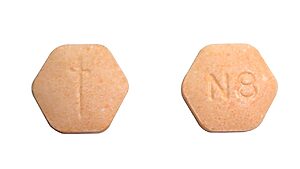What is a Co-Occurring Disorder?
Individuals who suffer from mental illness and substance use are considered to have a co-occurring disorder. A determination of ‘co-occurring disorder’ simply means that an individual has been diagnosed with substance use along with one or more mental illnesses. While some instances of specific conditions and substance use may be more common than others, any combination of mental illness and addiction is considered to be a co-occurring disorder. 
Who Is At Risk For A Co-Occurring Disorder?
Co-occurring disorders are not rare in the United States. In fact, a 2014 study called the National Survey on Drug Use and Health determined there were nearly 8 million adults in the country that suffered from a co-occurring disorder. For many individuals, addiction and mental illness go hand in hand. Addiction can affect anyone regardless of race, social status, occupation, or gender. However, individuals who suffer from a mental illness are considered to be at a higher risk of struggling with addiction than those who do not. The following factors, in particular, can increase the chances that an individual may be at risk of developing a co-occurring disorder:
- A new diagnosis of a mental illness
- Any combination of one or more mental illness
- Lack of appropriate treatment or therapy for a mental illness
- Prolonged or untreated substance use
- A recent trauma or significant life event
- A family history of mental illness or substance use (or both)
- Inability to accept a diagnosis of a mental illness
Dual Diagnosis vs. Co-Occurring Disorders
You may have heard the term ‘dual diagnosis’ in the past. This term was previously used to diagnose patients with both a mental illness and substance use. Dual diagnosis can be used interchangeably with co-occurring disorders, as they have similar meanings, but dual diagnosis treatment involves treating two separate conditions. In contrast, treatment for co-occurring disorders involves treating the relationship between the two. At Texas Recovery Center, we provide co-occurring disorder care to help people address the underlying mental health symptoms that could be perpetuating their addiction. [inline_cta_one]
What Comes First: Addiction Or Mental Illness?
It is common for people to inquire what comes first: substance use or mental illness? The answer can vary from person to person. For some, substance use may have resulted as an attempt to escape the suffering of mental illness. Mental illness can cause different symptoms in everyone, and when gone untreated it can feel unbearable and overwhelming. Drugs and alcohol can be an escape from these feelings for some individuals. In other cases, prolonged and untreated substance use can manifest into a mental illness. Drugs can cause actual chemical changes to take place in your brain, which can develop into a wide spectrum of mental disorders. It may even be the case that an individual was suffering from a mental disorder that was never diagnosed, yet the symptoms were still very real. Without any answers or treatment for this mental disorder, an individual may feel like drugs are their only escape. When it comes to treatment, however, it does not matter which element of the co-occurring disorder came first. Most addiction treatment centers will want to treat both the addiction and the mental illness simultaneously through therapy, group counseling, and medical detox if necessary. Since one element of a co-occurring disorder will usually exacerbate the other, it is essential both elements are addressed at the same time.
Signs And Symptoms Of A Co-Occurring Disorder
Symptoms of mental illness can manifest in different ways for different people. For example, an individual suffering from anxiety may appear to have overly cautious, well-planned, ‘type A’ personality. Someone else suffering from anxiety may display behavior that is erratic, hazardous, or nervous. There is no algorithm that can determine how someone will display symptoms of their mental illness, it all depends on the individual. The same is true for anyone who may suffer from a co-occurring disorder. It is difficult to predict how someone may cope with or display the symptoms of their disorders. Substance use and drug use can also alter the way these symptoms are displayed. One example of this is an individual who would typically display erratic or nervous behavior from an underlying anxiety disorder may appear serene and calm when under the influence of a benzodiazepine such as Xanax. There are, however, some telltale signs that an individual may be suffering from symptoms of an underlying mental illness and substance use disorder. These signs can include:
- Lying or attempting to hide the truth
- Refusal to seek help from a therapist or counselor
- Attempts to alienate themselves from others
- Sudden mood changes
- A personality shift
- Unstable home or work life
- Lack of self-respect or self-worth
- Inability to hold a job or relationship
- A sudden disinterest in past hobbies or friendships
Co-Occurring Disorder Care
Struggling with addiction alone can feel overwhelming. When mental illness is also a factor, individuals may feel alienated and alone. If you believe you or a loved one is suffering from a co-occurring disorder, we are here to make sure that you are never alone in your fight. With extensive knowledge of addiction treatment programs that are customized to fit your needs, our addiction treatment specialists are standing by to help you take your first step along the journey to recovery. Let us join you in your fight, give us a call today.












